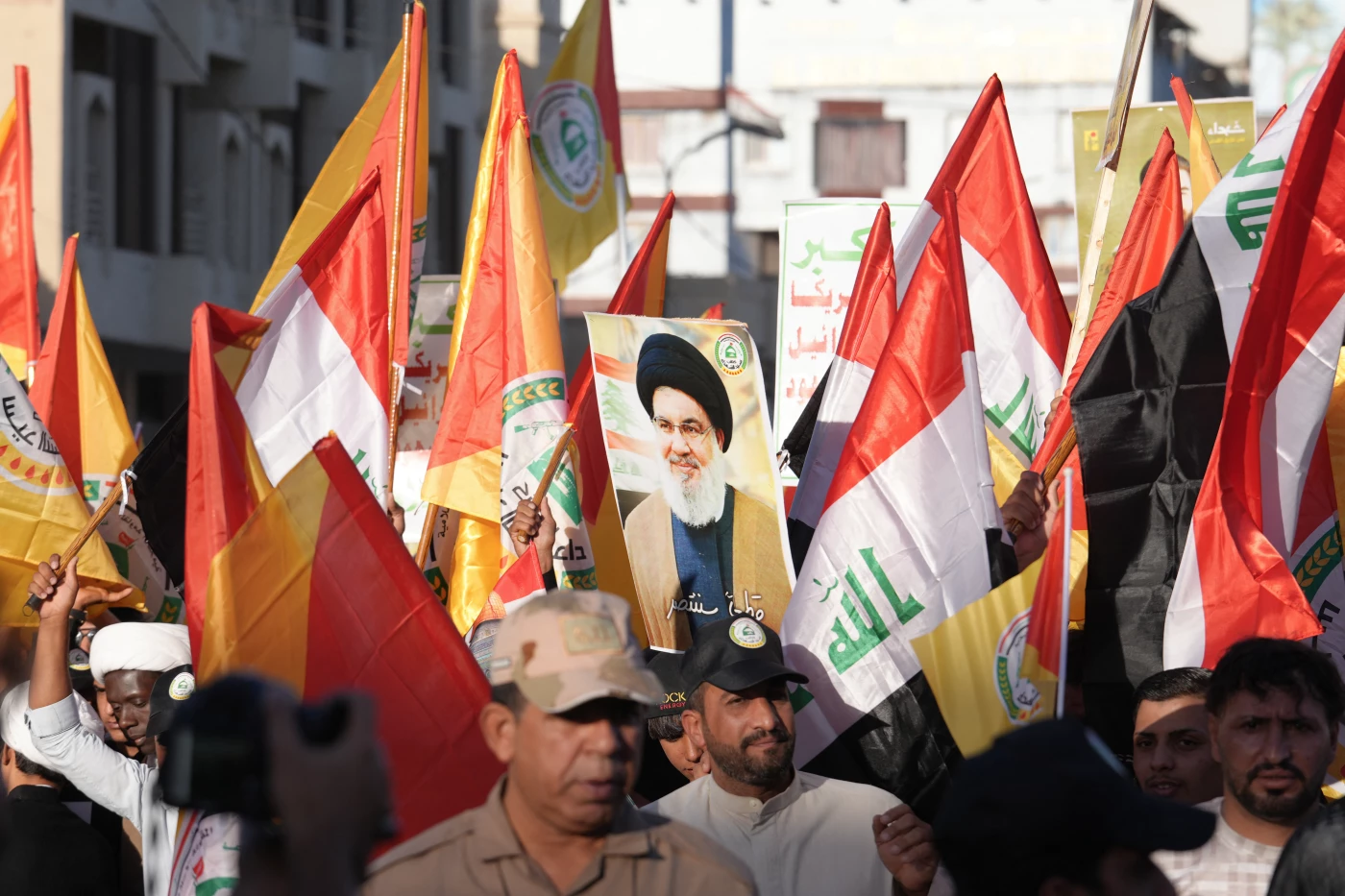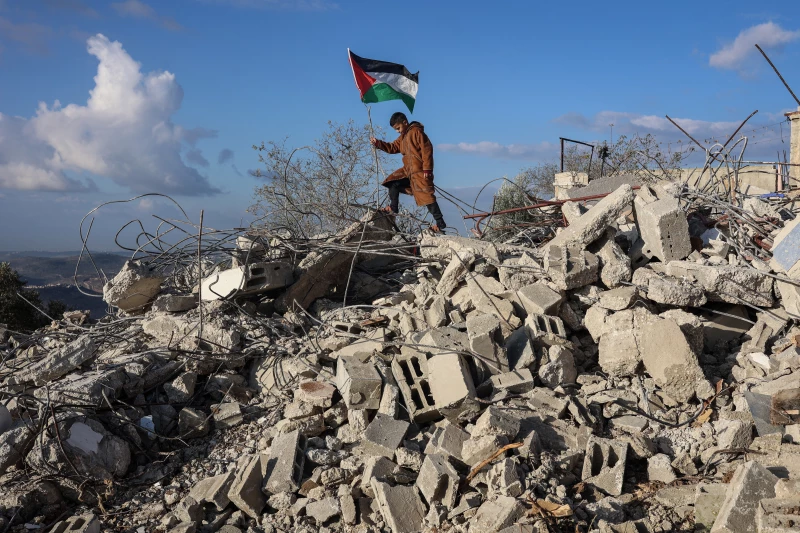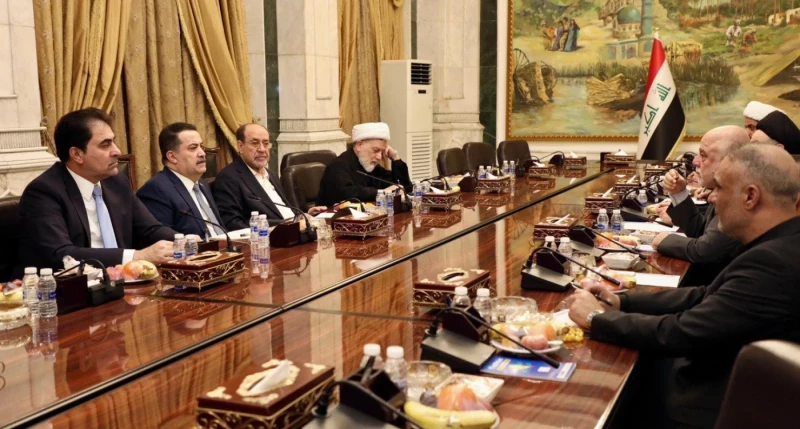DUBAI, UAE - Iraqi factions are bracing for potential Israeli airstrikes targeting leaders and critical infrastructure, with speculation mounting that Israel may extend its military campaign to Iraq in an effort to pressure armed groups to cease their support for Lebanese Hezbollah.
Sources in Iraq have suggested that Israel has identified more than 30 targets within the country, which could be hit at any time. Among the potential targets are command and control centers of Iraqi factions, as well as other strategic sites.
Iraqi groups aligned with Iran are reportedly awaiting directives from Tehran, or what they refer to as “Resistance Coordination,” to support Hezbollah’s efforts following the assassination of the Lebanese group's Secretary-General Hassan Nasrallah in an Israeli airstrike on Beirut’s southern suburbs last Friday.
An official from one of the Iraqi Islamic Resistance groups reminded the US of the Strategic Framework Agreement in place with Iraq, urging Washington to prevent any Israeli military action.
"We don't expect much from the United States," Kadhim al-Fartousi, spokesperson for the Sayyid al-Shuhada Brigades, told The New Region. “But there is a framework agreement with Iraq that includes protection, and we are holding them to their obligations.”
Fartousi expressed uncertainty about reports of an “Iraqi target bank” that Israel is allegedly planning to strike, focusing primarily on resistance groups. However, he did not dismiss the possibility of such an attack, describing Israel as a “Zionist entity without moral values.”
Government under pressure
The political wing of Sayyid al-Shuhada, led by Abu Alaa al-Walai, is an active part of the Iraqi government. Walai, a prominent figure in the ruling Shiite Coordination Framework, has claimed previously that his group has 100,000 fighters ready to be deployed to Lebanon.
Fartousi and other factions believe Israel has previously launched attacks in Iraq, citing incidents at Camp Saqr and along the Iraqi-Syrian border. He urged the Iraqi government to provide adequate protection against any potential Israeli strikes.
Following the outbreak of the Gaza war on October 7, Iraqi factions issued statements claiming responsibility for drone and cruise missile attacks against Israel. Israel has not officially commented on the claims, although it did confirm on September 18 that it intercepted drones originating from Iraq.
Preparation for escalation
Firas al-Yasir, a senior figure of al-Nujaba Movement, confirmed that both the government and resistance factions are preparing for any potential Israeli assault.
“The government must protect the Iraqi people and its institutions in the event of an attack,” Yasir told The New Region, adding that the “Resistance Axis is organizing and preparing for any emergency.”
On Monday, Iraq's Islamic Resistance released two separate statements in support of Palestinian and Lebanese efforts, announcing that they had fired missiles toward the Israeli city of Safed.
They also claimed responsibility for targeting a “vital site” with Arqab missiles, along with drone attacks on three additional targets in Haifa and its port. The statements did not specify any resulting damage.
The resistance groups have vowed to continue attacks on Israel in an escalating rate.
Tensions with the government
Meanwhile, the Iraqi government is seeking to avoid any Israeli counterstrikes. According to Ibrahim al-Sumaidaie, an advisor to the prime minister, the government has “pressured the factions” to avoid drawing Iraq into the conflict.
However, retired Iraqi general Imad Allou told The New Region that Israel may seek to broaden the conflict if attacks from Iraqi factions continue.
“If the factions persist in targeting Israel, we could see Israeli strikes on Iraq aimed at assassinating faction leaders and destroying vital infrastructure,” Allou said, adding that civilian sites could also be targeted in an effort to pressure factions to withdraw support for Hezbollah.



 Facebook
Facebook
 LinkedIn
LinkedIn
 Telegram
Telegram
 X
X


